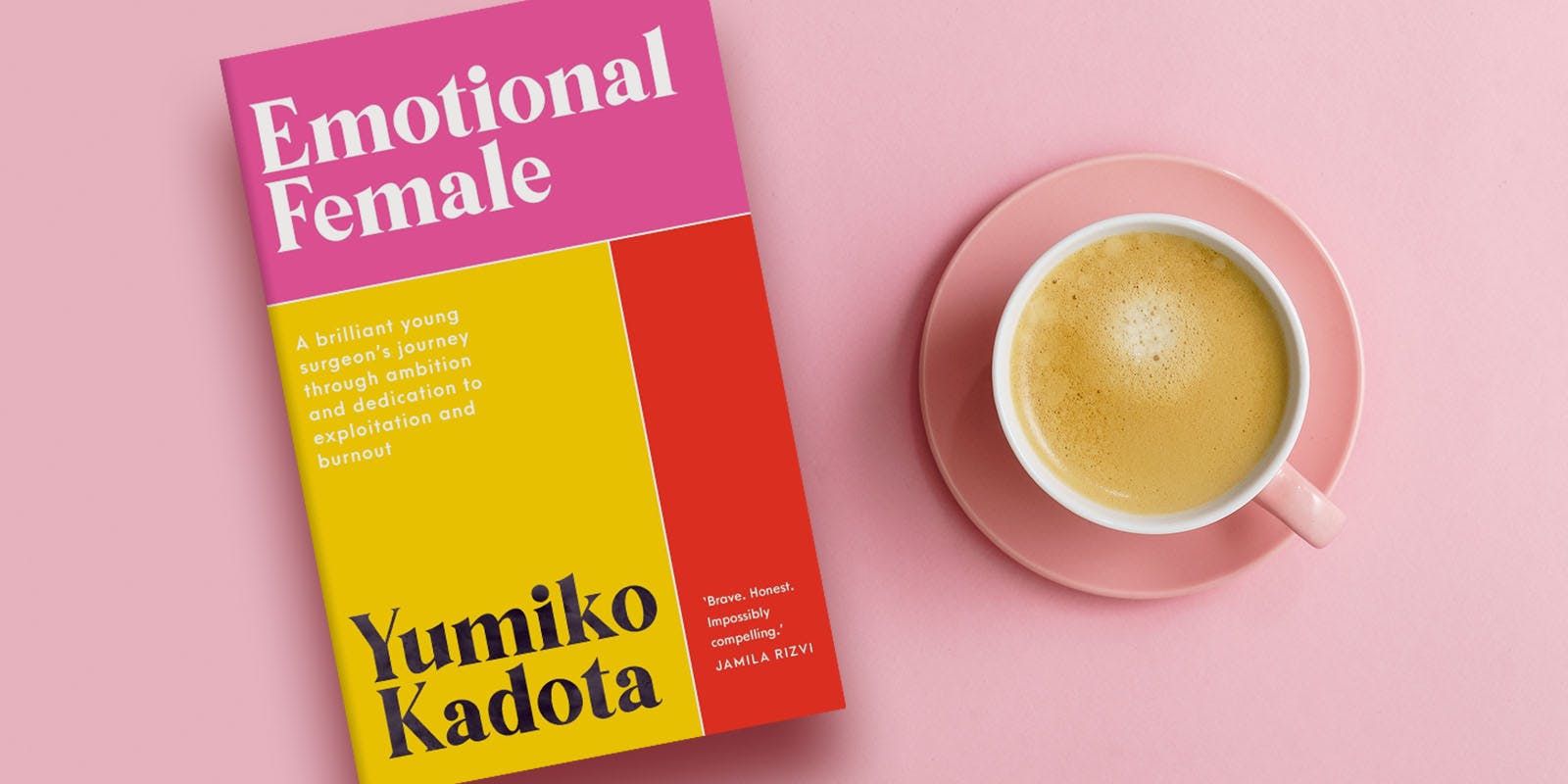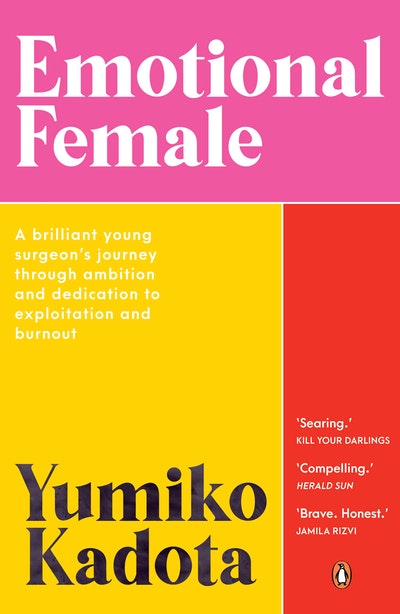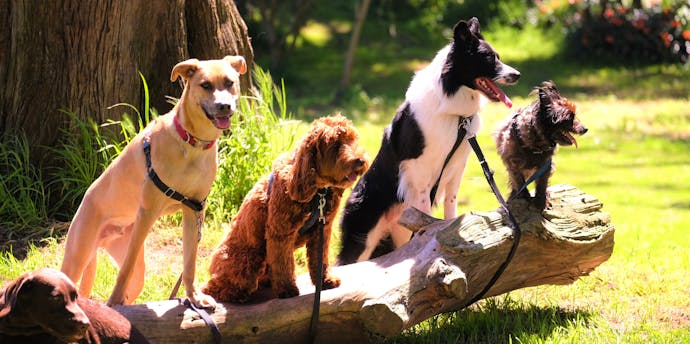The Emotional Female author on writing, toxic workplaces and what's next.
What was the process of writing the book like for you?
It was both difficult and enjoyable. When I first started writing it, the events were still fresh, which was beneficial in that it allowed me to remember things in great detail for the book, however it was also re-traumatising. There were times when things felt too heavy for me and I needed to take breaks from writing. I was still very much symptomatic of depression at the beginning of the writing process, so it was important to me that I looked after my mental health while writing. I’m thankful that throughout the experience, my publisher Nikki was supportive and understanding of that. Once I started to feel better, I enjoyed the learning opportunity. Having never written anything of this length before, it was an enormous learning curve, which I couldn’t have navigated without the expertise and experience of Bert Ivers and Catherine Hill. It was a privilege to be able to work with them, and I am very grateful for their generosity and thoughtfulness.
What do you hope readers take away from Emotional Female?
There are many themes to the book, so I hope you will take away from it what you need – whether you’re contemplating leaving your career, you’ve just been diagnosed with a mental illness, or you’re experiencing discrimination in your personal or work life. Regardless of what’s happening in your life, I hope Emotional Female will give you the courage to put yourself first and leave situations that no longer serve you. The most important message is: put yourself first. Nothing is more important than your physical and mental health.
What did your path to publication look like?
Mine was a very unexpected path. I love reading books but I never thought I’d be writing one. I’ve always enjoyed short pieces of writing, and had started up a blog post in 2018 to give myself something to do when I was in hospital being treated for depression. When I wrote my blog post, The ugly side of becoming a surgeon to chronicle what led to me leaving my job, I had just eleven subscribers. I thought I’d tag a few medical organisations when I posted it to Facebook, hoping that some of them might pay attention. The blog post ended up in the mainstream media, which led to a couple of publishers messaging me asking if I’d be interested in writing a book. From there, a friend suggested I find an agent – the lovely Clare Forster from Curtis Brown – who ended up linking me up with Penguin. That was around May 2019 – and here we are!
What would your advice to others experiencing toxic workplaces be?
I quote the incomparable Eckhart Tolle. In his life-changing book The Power of Now, he writes: 'If you find your here and now intolerable and it makes you unhappy, you have three options: remove yourself from the situation, change it, or accept it totally.' This is something I wish I had read earlier. I only discovered this book after I’d already quit. Obviously, you shouldn’t just quit straight away if you’re faced with challenges – we have to pick our battles. There are some things that you shouldn’t stand for, and that’s something you should determine based on your values. If you’re in a toxic workplace, my suggestion would be to first discuss it with a senior colleague whom you trust. It helps to have a ‘sponsor’ who will back you. And then, I’d go through the appropriate channels to try and change what needs changing. If you’ve exhausted all of your options, and feel that things will not improve for you, that’s when the difficult decision of whether to leave or not will come. Think about your skills and strengths – there will be someone else who will value them, there will be other opportunities. It is not worth killing yourself over a job.
Your sense of self and your identity was originally very tied to your career as a doctor and surgeon, how has this changed?
I’ve had to learn to detach myself from Medicine as an identity. Studying yoga philosophy (which is based on Hinduism) helped me a lot with this process. It was hard, because we used to be called by our specialty name whenever we were on call – for example I would answer to ‘Plastics’. I spent 6 years studying and 8 years working as a doctor (nearly half my life) when I left, so dis-identifying was very difficult. I still work in Medicine, but I see if more as something I do, not what I am.
You're very honest and raw in the book, what was it like to write it all down? Was it difficult to decide what to include or leave out?
The big structural edit with Bert definitely helped with this. She identified things that could be cut, while also asking me to write more about other things that she felt were more important. Throughout the writing process, I had trust in both Bert and Catherine when they made their suggestions. At the beginning, the book was more a collection of my memories and stories over the years. As the book started to take a bit more form, it became clearer to me what the major themes were that I needed to stick to. I started to think of the book more like a (super) long form essay, and that helped me to streamline what I needed to get across. Of course there are some stories that I wish I could have added, but I needed to make sure everything I put in the book was relevant to the big picture.
In your opinion has the medical industry changed since the article in the Sydney Morning Herald in 2019?
My short answer is no. I feel like we keep re-inventing the wheel. Discussions about doctor burnout, mental health, bullying, harassment, and sexism are not at all new – it has been going on for decades. Each year there will be some new campaign or program to address one of these big issues, and sometimes it feels like lip service. I believe those involved have good intentions, but somehow the wheels fall off because there is not enough interest from the relevant parties to keep it going. The big thing that needs to change is the culture, which is not immeasurable, but certainly difficult to assess quantitatively. What’s happening in the medical profession is a form of trans-generational trauma. When one generation of surgeons goes through a tough time in their training, they end up being the perpetrators to the generation that follows them. This cycle must stop. I do believe there is less overt bullying due to increased awareness and education about bullying, however there are still unconscious biases and covert bullying – which in some ways is more difficult to call out because it is insidious. From what I’ve observed at the medical student level, there is a greater emphasis on student and doctor wellbeing. I have hope in the current cohort of students to make a difference. Once these students become fully qualified consultants in their chosen field, I hope that we have eradicated the antiquated ‘old boys’ attitudes that currently pervades many areas within Medicine.
What's the best advice you've ever been given?
I’d love to share the worst, as I can’t think of the best. There is a white, male plastic surgeon from a wealthy family who famously tells every junior doctor that this is the best advice he can give them: 'Buy a house in Vaucluse, by the water.' This to me epitomises the white male privilege in surgery. The medical profession is extremely classist – something I wasn’t able to explore much in the book. Although there are some access programs for disadvantaged communities, by and large, upper- and middle-class people represent the majority of the medical cohort. I acknowledge my own privilege – one must be able to access a good education in order to gain the marks to enter Medicine. Many doctors also come from a family of doctors, which confers many advantages.
In what ways do you think lifestyle changes such as yoga, meditation etc can have an impact those experiencing burnout?
I think that every person should have a mental health toolbox – things to do when you’re having your bad days. It is also important to have a separate list of things to do on your good days too, when you’re able to do self-care activities that you may not have the energy or emotional bandwidth to participate in when you’re not feeling well. Yoga is not for everybody, although there are so many different forms of yoga that I encourage everyone to try out before dismissing it altogether. I’m a strong believer in mindfulness. Mindfulness is not synonymous with yoga and meditation, although of course they are wonderful for mindfulness. Mindfulness can be painting, gardening, listening to music… anything that allows you to notice your six senses. Having said all of this, we must not put the emphasis on the individual who is burning out. There must be institutional leadership to enforce better working conditions to prevent employees from burning out in the first place. This is where the responsibility must lie.
What’s next for you?
I am enjoying slowly getting back into clinical practice. I currently work with two lovely plastic surgeons, who have taken me on as their assistant surgeon in the private hospital system, as well as work as an injector for their private practices. And, of course, all of my energy is behind sharing Emotional Female to readers. If it is well received, I would love to write again. I loved working with Nikki Christer and everybody at Penguin – I look forward to another book together.













